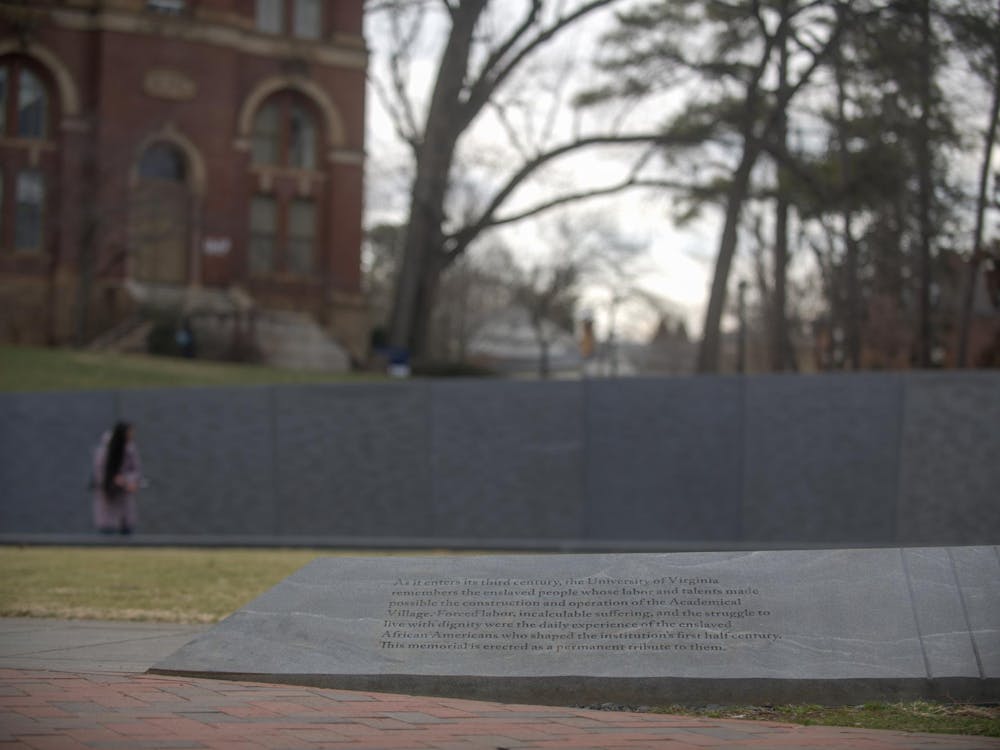Spring Break has come and gone, we've grudgingly turned the clocks back to lose an hour of sleep, the season's last home basketball game is over and hopes of a winter wonderland are quickly dwindling. But spring at the University brings a great deal to look forward to, including frisbee on the Lawn, the Foxfield Races, tubing on the James River and Peanuts and Crackerjacks.
This year's baseball season marks the second season of Peanuts and Crackerjacks, a mentoring program that brings underprivileged Charlottesville elementary school children to University baseball games. The organization was founded in spring 2006 by a close group of first-year friends.
Third-year College student Greg Crapanzano, who cofounded Peanuts and Crackerjacks with third-year Commerce student Paul Wagoner, said he was studying for a commerce exam late into the night, when "it just popped into my head that we should take kids to baseball games."
Crapanzano immediately pitched the idea to his friends. Having mastered the balancing act between their social and academic lives -- not to mention overcoming the daunting first-year challenge of doing their own laundry -- they were eager to make Crapanzano's late-night idea a reality.
"We decided that the best way to get involved was to start something new," Wagoner said.
When developing Peanuts and Crackerjacks, Crapanzano made a conscious decision not to try to establish the program through Madison House. The founders wanted the organization to be completely student-run so they could have "complete control over the organization," Crapanzano said.
Peanuts and Crackerjacks is unique from the mentoring opportunities offered through Madison House. Crapanzano maintained that while his organization is often described as "the Big Sibs program just with baseball," Peanuts and Crackerjacks differs from the Big Sibling Program's, one-on-one mentoring because of its group dynamic.
"The group setting is unique, and the group mentoring opportunity is different than the Big Sibs program because the kids can pick who they get along with and who they hang out with," third-year Nursing student Meghan Bowe said. In addition to providing children with an opportunity to interact with University mentors, she said, the program also teaches "the kids to interact with each other in an appropriate way, as well."
While being independent from Madison House offers flexibility for the organization, it also proved to be one of the main obstacles the founders faced when starting the program. Many Charlottesville elementary schools were skeptical about the organization because it was not established within the community and lacked the credible association with Madison House. Even though the idea sounded great to many schools, Bowe said, they were hesitant to have their students be the "guinea pigs."
Greenbrier Elementary School eventually agreed to participate for the 2007 baseball season. Over the course of its first year, Peanuts and Crackerjacks proved to be a success both on and off the field, Bowe described, noting the young participants are as eager to interact with University mentors as to run around the bases or have their baseballs autographed.
"The kids just want to talk to you and be your friend," Bowe said. "They want to build a relationship with you."
Baseball games are an effective form of mentoring because they provide children with a change of pace and an opportunity to be outside in a fun athletic environment that is easy to understand, Bowe explained.
"Any kid can understand with baseball that they are trying to hit the ball and run around the bases," she said.
Because he loved going to baseball games with his dad when he was younger, Wagoner said he hopes to give the same opportunity to children who might not have dads or who might not otherwise be able to attend games.
Another goal of the organization is to expose children to a college environment, as many of the children Peanuts and Crackerjacks interacts with are from lower socioeconomic backgrounds. For many, it is their first experience in an university setting and, Crapanzano explained, if it is something they enjoy, they may be motivated to stay in school.
The pressure, then, falls on the shoulders of participating University students to be exemplary role models.
"By building relationships with people who are making good decisions and care about their education, the kids see that they can do it too," Bowe said.
For this year's baseball season, only one year after the club's inaugural year, the organization is expanding tremendously. The number of participating University students has grown from 10 to about 40, and Peanuts and Crackerjacks will take groups of kids from two elementary schools to games this spring.
"It's overwhelming how fast it grew because last year it was just me, my friends and my friends' friends," Crapanzano said.
As the organization grows, Crapanzano said it will have to look beyond the baseball season, noting "yearlong consistent contact is the most important thing we could have." To make that happen, Peanuts and Crackerjacks hopes to incorporate after-school kickball games or movie viewings with the kids and establish a pen-pal program during the summer. Peanuts and Crackerjacks would also like to take the kids to other University athletic events, such as lacrosse and soccer games.
It is the simple, yet powerful, reward of seeing the smiles on the children's faces at baseball games that has caused the organization to grow within the University community and reinforced the efforts of the Peanuts and Crackerjacks mentors, Crapanzano noted.
"Seeing the kids extremely happy and not wanting to go home, you feel like you're making a difference," he said.






